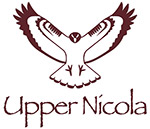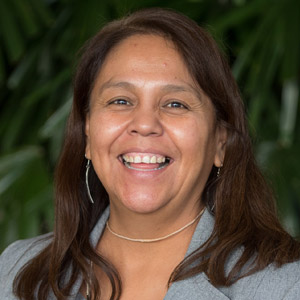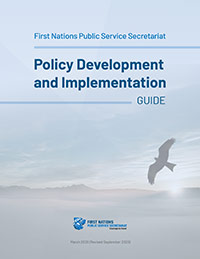Background
Developed by First Nations Public Service Secretariat (FNPSS)

The purpose of the FNPSS is to create and implement a collective plan to support First Nations communities and organizations in British Columbia (BC) as they pursue excellence in capacity building and human resource development.
The goals of the FNPSS are to1:
- Strengthen and support relationships between First Nations Leadership, Administration and communities
- Coordinate and strengthen human resource development for Nation workers in the core competencies: human resources; financial and information management; and policy development
- Support and enhance human resource development efforts for Nation workers in a range of professional sectors, such as health, education, children and families, resource management, etc.
Authors
Introduction
Who should read the Guide?
The Policy Development and Implementation Guide is for anyone wanting to learn about policy or needing to develop policy, such as Band Administrators and analysts.
What is policy development?
Based on community interests and needs, developing policy usually involves the identification, research and analysis of a particular issue, and consultation with communities, community members and other stakeholders. The information gathered is then synthesized to produce options and recommendations on a proposed way forward for Elected Leaders (Chief and Council, referred to as ‘Leaders’) to decide upon – in the form of a policy proposal. A policy proposal usually includes implementation and communications plans.
Leaders and administrative policy decision makers (Administrators) then need to decide how to move forward and the decision is linked to a First Nation’s priorities, strategic plans, budgets and agenda. Once the decision to move ahead on a particular option is made, the implementation of the policy commences, and it is monitored and evaluated to ensure that arising issues are addressed.
The Policy Development and Implementation Guide
The Guide is intended to provide a framework for those who are interested in learning about what policy is, how it is developed and implemented, and tools for measuring the success of policies. The Guide also provides tools for developing policies based on a Policy Creation Worksheet (Appendix A) and a Policy Template (Appendix B). These tools are intended to help individuals prepare for the development of a policy based on a series of questions and create a policy using a sample outline.
First Nation Case Study
 We have chosen to use a First Nation Case Study to assist the reader in understanding what policy is, how it is developed and why it is developed. The Upper Nicola Band example illustrates how the Band developed financial management policy and legislation consistent with the community’s vision and strategic plan.
We have chosen to use a First Nation Case Study to assist the reader in understanding what policy is, how it is developed and why it is developed. The Upper Nicola Band example illustrates how the Band developed financial management policy and legislation consistent with the community’s vision and strategic plan.
First Nation Case Study – Upper Nicola Band
- Upper Nicola Band (UNB) is a First Nation of the Okanagan Nation, with a membership of 980 members. UNB is located 45 kilometres east of Merritt and 90 kilometres south of Kamloops, BC, Canada. UNB has a land base of 30,848 acres that spans a range of 50 kilometres along Highway 5A and the Douglas Lake Road.
- UNB has approximately 80 employees whose positions fall under the three pillars of the organization: Governance, Administration and Economic Development.
- Over the last six years, UNB has worked to develop a foundation that is preparing the community for success in the future. Leaders realized that there had to be more than managing poverty for the community members. Once UNB learned about the opportunities available under the First Nations Fiscal Management Act,2 they began to take action.
- UNB is seeking to develop a 15 MW solar project on reserve by 2021. This, along with other business initiatives, is led by the UNB Holdings Limited.
- UNB initially passed its Finance Administration Law (FAL) in 2014. In December 2016, UNB opted in to seek Financial Management System Certification (FMS Certification) from the First Nations Financial Management Board (FMB).3 UNB updated the FAL in 2018 (FAL 2018) after approval from the FNB. The goal of the FAL 2018 is to practice transparency and accountability to UNB members. FAL 2018 describes roles and responsibilities of Leaders and Administrators to ensure that community funds are managed in a transparent manner and that there is accountability to the members.
- In addition to passing the FAL 2018, UNB took advantage of other opportunities under the First Nations Fiscal Management Act. In 2016, UNB passed Property Tax Laws,4 under the requirements of the First Nations Tax Commission. The UNB Property Tax Laws allow UNB to implement its jurisdiction over property taxes. Instead of the Province of BC collecting taxes on UNB lands, UNB (a First Nation government) began to collect taxes in 2017.
- In March 2020, UNB received its FMS Certification, at which time it was recognized that UNB Leaders, Administrators and community membership implemented their own financial administration law.
- Receiving FMS Certification creates opportunities for the community, as its members plan for their future. For example, FMS Certification helps a First Nation remain in good standing with the First Nations Financial Authority (FNFA), which provides access to loans at lower rates.5
- UNB Leaders and Administrators recognize that all the work associated with FMS Certification aligns with principles of UNB’s Mission and Vision statements.6
- While UNB worked towards FMS Certification, other developments took place, including the opportunity to shape its own programs and services through participation in the 10-Year Grant from Indigenous Services Canada, Government of Canada.11 In 2019, UNB was one of the first 88 First Nations that opted into the 10-Year Grant.
- Over 36 months, between April 2017 and March 2020, UNB worked to develop and implement the list of budgets, plans and policies that are needed to receive FMS Certification.
Budget Plans Policies Annual Financial
Budget and Multi-year Financial Budget- Strategic plan
- Tangible capital plan (5-year)
- Risk management plan
- Governance
- Finance
- Information management
- Personnel policy
- The FMB provided assistance to develop policies, offered training and facilitated workshops, such as Change Management and Risk Assessment, that were new for Leaders and Administrators.
- Now that all plans and policies have been passed, it is the responsibility of Leaders and Administrators to fully implement them. There has been much change to UNB systems. UNB Leaders and Administrators believe that the efforts of all involved will pay off as we develop a strong foundation for the community.
UNB Leaders and Administrators believe that the efforts of all involved will pay off as we develop a strong foundation for the community.
Footnotes
[1] FNPSS. “About the First Nations Public Service Secretariat”. Retrieved from fnps.ca/about
[2] Justice Laws Website. “First Nations Fiscal Management Act”. Retrieved from: laws-lois.justice.gc.ca/eng/acts/F-11.67/page-1.html
[3] First Nations Financial Management Board. “Financial Management System Certification”. Retrieved from: fnfmb.com/en/services/certify-first-nations/financial-management-system-certification
[4] Upper Nicola Band Property Taxation Law, 2016. Retrieved from: partii-partiii.fng.ca/fng-gpn-II-III/pii/en/item/473267/index.do?q=upper+nicola+indian+band+property+tax+law
[5] First Nations Financial Authority. “FNFA Borrowing Process”. Retrieved from: www.fnfa.ca/en/for-first-nations/financing/fnfa-borrowing-process/
[6] Upper Nicola. “Home”. Retrieved from: uppernicola.com/
[7] syilx (Okanagan): concept for taking care of the land so that future generations will enjoy fruitful sustenance
[8] syilx (Okanagan): oral stories that are the foundation of our laws
[9] syilx (Okanagan): governance practice that seeks consensus by taking time needed to understand all peoples’ views on an issue
[10] syilx (Okanagan) concept of the land and all of its beings
[11] Government of Canada. “10-Year Grant”. Retrieved from: www.sac-isc.gc.ca/eng/1527080791657/1527080813525
| Link | Title | Date | Summary | Categories | Tags | hf:doc_categories | hf:doc_tags |
|---|---|---|---|---|---|---|---|
| FNDGS In Plain Sight Report | January 31, 2023 | … | |||||
| FNDGS Disaggregated Data Report – Sept 2020 | January 31, 2023 | … | |||||
| BC Tripartite Data Quality and Sharing Agreement | January 31, 2023 | … | Governance | governance | |||
| BC Data Governance Discussion Paper 2019 | January 31, 2023 | … | Governance | governance | |||
| FNDGS Core Functions Descriptions | January 31, 2023 | … | Governance | governance | |||
| FNDGS Information Sheet | January 31, 2023 | … | Governance | governance | |||
| FNDGS Executive Summary | January 31, 2023 | … | Governance | governance | |||
| FNDGS Cover Letter | January 31, 2023 | … | Governance | governance | |||
| FNDGS – Invitation Email and Principles | January 31, 2023 | … | Governance | governance | |||
| FNDGS BC Engagements 2021 | January 31, 2023 | … | Governance | governance |
 Collette Sunday is a member of the
Collette Sunday is a member of the  Lisa Nye has more than 30 years of experience working with Indigenous organizations, communities and people, private sector and industrial organizations, and governments, both as a consultant and as a senior government manager. Ms. Nye has worked in policy development and implementation, consultation and engagement, and project oversight and planning. Ms. Nye received the Lieutenant Governor’s Medal for Excellence in the Public Service in 2007 and the Métis Order of the Sash largely for her extensive work with Indigenous Nations, communities and organizations. She is currently the CEO of Pinpoint Consulting Inc.
Lisa Nye has more than 30 years of experience working with Indigenous organizations, communities and people, private sector and industrial organizations, and governments, both as a consultant and as a senior government manager. Ms. Nye has worked in policy development and implementation, consultation and engagement, and project oversight and planning. Ms. Nye received the Lieutenant Governor’s Medal for Excellence in the Public Service in 2007 and the Métis Order of the Sash largely for her extensive work with Indigenous Nations, communities and organizations. She is currently the CEO of Pinpoint Consulting Inc.